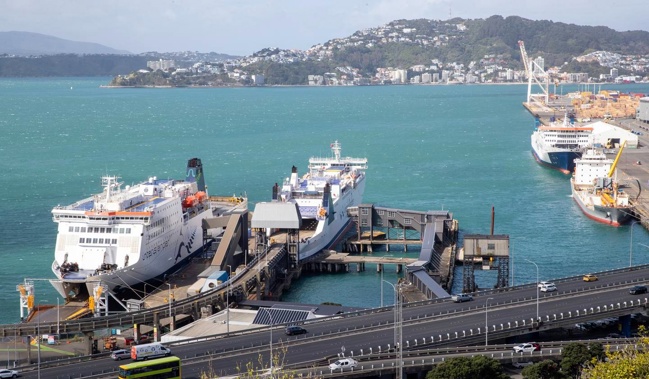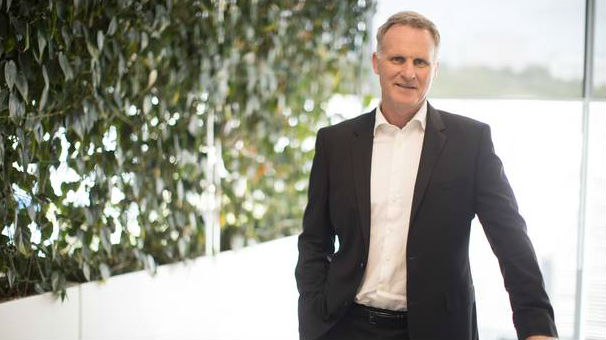
KiwiRail is keen to discuss options with the Government to improve the infrastructure of the nation's key ferry ports and the connection between the North and South Islands - despite its request for more money being turned down.
The cost of two mega-ferries and upgrading Wellington and Picton port infrastructure had ballooned to about $3 billion - and KiwiRail has announced it can't proceed without extra support from the Government.
However, Finance Minister Nicola Willis said the Government is looking at other ferry options after turning down KiwiRail's request for more Interislander funding.
"The option that had been on the table for KiwiRail was the equivalent of the Ferrari, and now we as a government are saying - look, can we have a look around, are there some very good, safe, reliable Toyota Corollas we could be using instead?" she explained to Newstalk ZB on Wednesday.
KiwiRail chief executive Peter Reidy told the Mike Hosking Breakfast this morning the cost of port upgrades was due to its complicated nature.
"This is the most complex marine engineering project in New Zealand," he said.
"There's landslide infrastructure, a marina in the earthquake-zone area, we got the design and contract together and got construction methodology on the table, it was clear it was gonna cost a lot more than the initial design. It is the terminals, it's not the ships."
Reidy denied KiwiRail intentionally lowballed the Government when it initially projected the job to cost $1.45 billion, saying information at the time indicated the cost projection was a fair one.
"I've gone through all the information - [with a] normal construction project you go through a level of design maturity, we've had significant experts and global experts, significant information, Treasury's had all this information back in May and June," said Reidy.
"Ultimately, when we went through that we said it can't be done for that money, the risk was too high for New Zealand.

"We think it was the right solution for New Zealand to deliver a safe, resilient service across the Cook Strait."
When Hosking asked why KiwiRail couldn't just pay for the upgrades and ferry issues itself, Reidy said trying to fund infrastructure has always been a challenge and the company would be looking at future funding sources.
“Air New Zealand couldn't survive if it had to pay for all the terminal upgrades around New Zealand when they bring in new planes," said Reidy.
Reidy said KiwiRail will invest approximately $500 million into infrastructure and ferries but would need another half a billion dollars from the Government after loans and support from other parties.
The chief executive said the focus wasn't on today's business but the future of trade and improving the country's economy.
"This is about tomorrow - this is our growth," said Reidy.
"We're an export-led economy, Mike, this is about how we support infrastructure to support importers, exporters, domestic and tourism operators for economic growth."
Hosking also asked Reidy if he had threatened to pull ferries from the Cook Strait if KiwiRail's demands weren't met, as claimed online - a suggestion Reidy rejected.
He said both the previous and the new governments were clear that they see the ownership of the Cook Strait ferries' business as part of KiwiRail's portfolio and part of New Zealand.
"We've got a strong summer this season, our volumes are significant, tourism is back, it's a key part of transport connectivity. You just need to talk to the customers and they'll tell you that."
Take your Radio, Podcasts and Music with you









